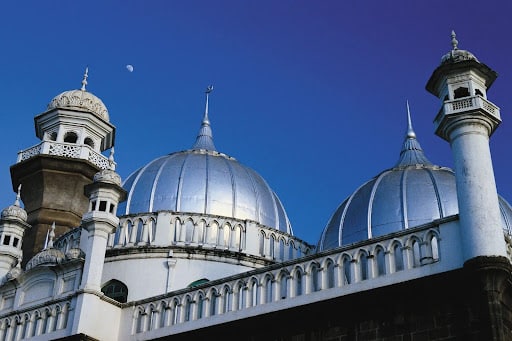Urban life in Kenya is a vibrant tapestry woven with diverse cultural, social, and economic threads. One of the most significant influences on this urban tapestry is the role of religious communities. These communities, with their rich histories and traditions, shape various aspects of urban life, from education and healthcare to politics and culture. Understanding how religious communities shape urban life in Kenya is crucial for appreciating the multifaceted nature of Kenyan cities.
Historical Background
Evolution of Religious Communities in Kenya
Kenya’s religious landscape is a result of centuries of evolution, influenced by indigenous beliefs, colonialism, and global religious movements. Christianity and Islam are the predominant religions, introduced by missionaries and traders, respectively. Indigenous African religions, although less prominent, still play a vital role in the cultural fabric. Over time, these religious communities have adapted to urban environments, becoming integral to the social and cultural life of cities like Nairobi and Mombasa.
Key Historical Milestones
Several historical milestones have shaped the influence of religious communities in urban Kenya. The arrival of Christian missionaries in the 19th century led to the establishment of schools and hospitals, which became central to urban development. The spread of Islam through trade networks also contributed significantly, especially in coastal cities. These milestones highlight the deep-rooted connection between religion and urbanization in Kenya.
Major Religious Communities in Urban Kenya
Christianity
Christianity is the largest religion in Kenya, with numerous denominations present in urban areas. Churches are not just places of worship but also community centers that offer a range of services. Many of the country’s best schools and hospitals are run by Christian organizations, underscoring their vital role in urban life.
Islam
Islam has a significant presence in Kenya’s urban centers, particularly in coastal regions. Mosques and Islamic centers serve as hubs for religious and social activities. Islamic communities are known for their contributions to commerce, with many urban businesses owned and operated by Muslim entrepreneurs. The influence of Islam in urban areas is evident in the cultural and economic landscapes.
Traditional African Religions
Traditional African religions, though less visible, continue to influence urban life. These religions are often intertwined with cultural practices and community events. They play a crucial role in maintaining cultural heritage and identity, especially in the face of rapid urbanization and modernization.
Other Religions
Kenya’s urban areas also host a variety of other religious communities, including Hindus, Buddhists, and Jews. These communities contribute to the cultural diversity of cities, offering unique perspectives and practices that enrich urban life. Temples, synagogues, and other places of worship provide spiritual support and cultural cohesion for their adherents.
Social Impact of Religious Communities
Education
Religious communities have historically been at the forefront of education in Kenya. Christian missionaries established some of the first schools in the country, many of which remain highly regarded today. Islamic schools, or madrassas, provide religious and secular education, particularly in coastal regions. These institutions play a critical role in shaping the minds of young Kenyans, fostering both academic and moral development.
Healthcare
The healthcare sector in urban Kenya benefits significantly from the involvement of religious communities. Numerous hospitals and clinics are run by religious organizations, providing essential medical services to urban populations. These facilities often offer affordable or free healthcare, addressing gaps in the public health system and ensuring that even the most vulnerable populations receive care.
Social Services
Religious communities are also deeply involved in providing social services. They run orphanages, shelters, and food distribution programs, supporting those in need. In times of crisis, such as during natural disasters or economic downturns, religious organizations often mobilize quickly to provide relief and support, demonstrating their commitment to social welfare.
Cultural Influence
Festivals and Celebrations
Religious festivals and celebrations are integral to urban culture in Kenya. Christian holidays like Christmas and Easter, as well as Islamic holidays like Eid al-Fitr and Eid al-Adha, are celebrated with great enthusiasm. These events bring communities together, fostering a sense of unity and shared cultural identity. Public spaces are often adorned with decorations, and communal activities enhance the festive spirit. Moreover, these religious celebrations often emphasize inner peace and happiness, promoting a sense of spiritual well-being and community harmony that is essential for vibrant urban life.
Arts and Music
The influence of religious communities extends to the arts and music scenes in urban Kenya. Gospel music is immensely popular, with many artists gaining national and international recognition. Similarly, Islamic cultural expressions, including traditional Swahili poetry and music, enrich the cultural landscape. Religious themes are prevalent in various art forms, reflecting the deep spiritual roots of urban communities.
Economic Contributions
Business and Commerce
Religious communities contribute significantly to the economy of urban Kenya. Many businesses are owned by religious organizations or individuals who adhere to religious principles in their operations. For example, Islamic finance, which prohibits interest, has led to the development of Sharia-compliant financial institutions. These businesses not only provide goods and services but also create employment opportunities, supporting economic growth.
Employment
Religious institutions are major employers in urban areas. Churches, mosques, and temples provide jobs ranging from administrative roles to positions in education and healthcare. These jobs are crucial in reducing urban unemployment and enhancing economic stability. Additionally, the ethical values promoted by religious communities often translate into fair and supportive workplaces.
Political and Civic Engagement
Advocacy and Activism
Religious communities in Kenya are active in advocacy and activism, addressing social and political issues. They have been involved in campaigns for peace, justice, and human rights. Religious leaders often speak out on critical issues, using their influence to advocate for positive change. Their involvement in civic matters underscores the integral role of religion in shaping public discourse and policy.
Governance
Religious communities interact closely with local and national governments. They are involved in policy discussions and urban planning processes, ensuring that the needs and values of their communities are considered. This collaboration is essential for creating inclusive urban environments that respect and reflect the diverse religious landscape of Kenya.
Challenges and Controversies
Inter-religious Tensions
Despite their positive contributions, religious communities in urban Kenya sometimes face tensions. Competition for resources and influence can lead to conflicts. However, many religious leaders and organizations actively work towards promoting interfaith dialogue and understanding, aiming to resolve conflicts and build harmonious relationships.
Secularism and Modernity
As Kenya’s urban areas modernize, religious communities must navigate the challenges posed by secularism. Balancing traditional religious values with contemporary urban lifestyles can be complex. Religious organizations often engage in outreach and education to remain relevant and address the evolving needs of their adherents.
Case Studies
Nairobi
In Nairobi, the capital city, religious communities play a pivotal role in urban life. Churches and mosques are ubiquitous, serving as centers for worship, education, and community activities. The influence of religious organizations is evident in the numerous faith-based schools and hospitals. Nairobi’s vibrant cultural scene is also shaped by religious festivals and events, which bring diverse communities together.
Mombasa
Mombasa, a major coastal city, showcases the significant influence of Islam in urban life. The city is home to numerous mosques and Islamic centers that contribute to both the spiritual and economic life of the community. Islamic businesses, including those in the tourism sector, are vital to the city’s economy. Mombasa also hosts various cultural festivals that celebrate its rich Islamic heritage.
Future Prospects
Emerging trends suggest that the influence of religious communities in urban Kenya will continue to evolve. Increasing urbanization and globalization are likely to introduce new dynamics, challenging religious communities to adapt while maintaining their core values. The continued collaboration between religious organizations and other stakeholders will be essential for addressing urban challenges and fostering inclusive development.
FAQs
What are the major religions in urban Kenya?
The major religions in urban Kenya are Christianity and Islam, followed by traditional African religions and smaller communities of Hindus, Buddhists, and Jews.
How do religious communities contribute to education in urban Kenya?
Religious communities have established numerous schools, providing both academic and moral education. Christian missionaries, for example, have founded some of the country’s most respected educational institutions.
What is the economic impact of religious communities in urban areas?
Religious communities contribute to the economy through business ownership, job creation, and ethical business practices. They also support economic growth through charitable activities and social services.
How do religious festivals influence urban culture in Kenya?
Religious festivals bring communities together, fostering unity and cultural cohesion. These events are celebrated with enthusiasm, enhancing the urban cultural landscape with decorations, music, and communal activities.
What challenges do religious communities face in urban Kenya?
Challenges include inter-religious tensions and the balance between traditional values and modern urban lifestyles. Religious communities work towards promoting interfaith dialogue and adapting to contemporary societal needs.
Conclusion
Religious communities play an integral role in shaping urban life in Kenya. Their contributions to education, healthcare, social services, culture, economy, and politics are profound and far-reaching. Understanding how religious communities shape urban life in Kenya offers valuable insights into the complex and dynamic nature of Kenyan cities. As urbanization continues, the collaboration between religious communities and other urban stakeholders will be crucial for building harmonious and vibrant urban environments.




